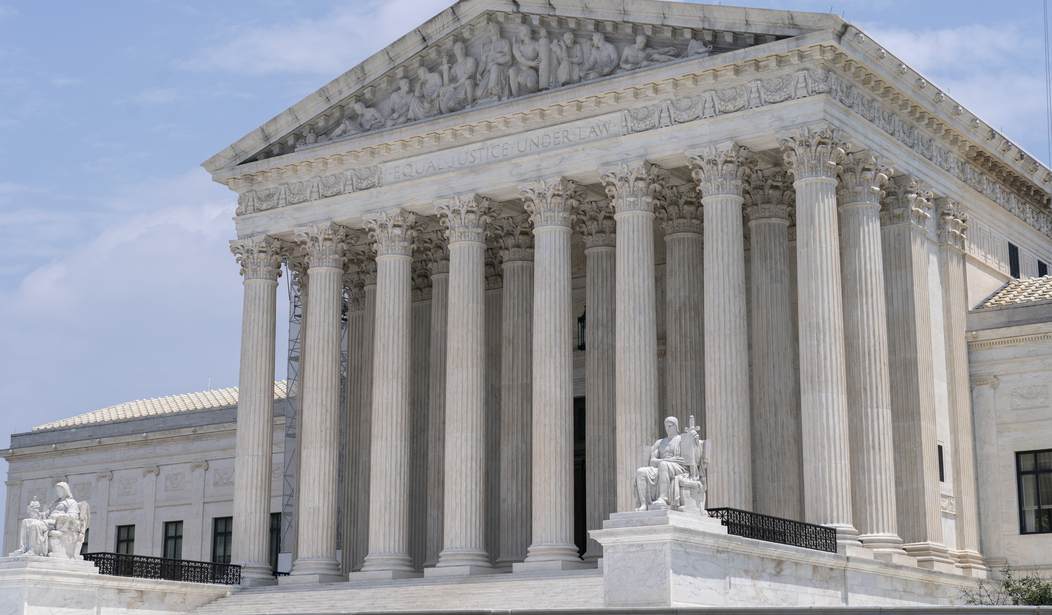The Supreme Court will decide whether the Trump administration’s ban on bump stocks, implemented by the ATF in 2018 after the Route 91 music festival shootings in Las Vegas, was a proper exercise of agency authority or an overreach on the part of the administration. On Friday the Court granted cert in a case known as Garland v. Cargill; one of several cases that have been bouncing around the lower courts since the ban was first put in place.
The Court’s granting of the case wasn’t exactly a surprise, for a couple of reasons. The Solicitor General had sought Supreme Court review, but there are also splits in the federal appellate courts over the legality of the ban. The Fifth Circuit has ruled the bump stock ban was improperly put into effect, while the D.C. Circuit, Sixth Circuit, and Tenth Circuit have all allowed the ban to remain in effect.
The question before the Court is whether a bump stock can be considered a “machine gun” under the statutory definition provided by the National Firearms Act; “any weapon which shoots, is designed to shoot, or can be readily restored to shoot, automatically more than one shot, without manual reloading, by a single function of the trigger. The term shall also include the frame or receiver of any such weapon, any part designed and intended solely and exclusively, or combination of parts designed and intended, for use in converting a weapon into a machinegun, and any combination of parts from which a machinegun can be assembled if such parts are in the possession or under the control of a person.”
Bump stocks can increase the rate of fire, but still require a separate pull of the trigger before a round is discharged. For years the ATF maintained that bump stocks were not machine guns, but reversed course after Donald Trump ordered the agency to review its findings in 2018. Lo and behold, the ATF reversed course and declared that the previous guidance “addressing bump stocks without internal springs did ‘not reflect the best interpretation of the term ‘machinegun’” (quoting from the Solicitor General’s cert petition).
The notice further stated that ATF had “applied different understandings of the term ‘automatically’” over time in reviewing bump stocks and that the agency had “authority to ‘reconsider and rectify’ potential classification errors.” The notice proposed to “clarify that all bump-stock-type devices are ‘machineguns’” under the statutory definition.
ATF published a final rule on December 26, 2018. The final rule amended ATF’s regulations to address the terms “single function of the trigger” and “automatically” as used in the definition of “machinegun” in order to clarify that bump stock devices are machineguns under Section 5845(b). In the preamble to the rule, the agency stated that it continued to adhere to its previous understanding that the phrase “‘single function of the trigger’” includes a “‘single pull of the trigger,’” while clarifying that the phrase also includes motions “analogous” to a single pull. ATF also determined that, under the “best interpretation of the statute,” the term “automatically” includes functioning “as the result of a self-acting or self-regulating mechanism that allows the firing of multiple rounds through a single pull of the trigger.”
Michael Cargill, owner of Central Texas Gun Works, challenged the new rule shortly after it took effect. While a district court judge and three-judge panel on the Fifth Circuit ruled in favor of the government, an en banc review by the Fifth Circuit overturned those decisions, with a majority agreeing that the rule of lenity requires interpreting the statutory definition of machinegun not to encompass bump stocks.
The Court’s ruling in this case could also end up having an impact on the Biden administration’s use of ATF rules to impose new restrictions on pistol-stabilizing braces and unfinished frames and receivers, which the agency has largely reclassified as short-barreled rifles and completed firearms, respectively.
Besides the Cargill case, the Supreme Court also granted cert to a Second Amendment-adjacent case involving the National Rifle Association. In NRA v. Vullo, the Court will determine whether the actions of the head of New York’s Department of Financial Services violated the First Amendment rights of the Second Amendment organization by using “backchannel threats, ominous guidance letters, and selective enforcement of regulatory infractions—to induce banks and insurance companies to avoid doing business” with the 2A group. In its order granting cert, the Court agreed to answer the following question:
Does the First Amendment allow a government regulator to threaten regulated entities with adverse regulatory actions if they do business with a controversial speaker, as a consequence of (a) the government’s own hostility to the speaker’s viewpoint or (b) a perceived “general backlash” against the speaker’s advocacy?
Again, the stakes here are pretty clear. If the Court finds that the actions of the DFS head are acceptable, we can expect more anti-gun officials in states across the country to pressure outside groups from associating and doing business with Second Amendment organizations (or other groups disfavored by the party in power).
I’m glad to see both of these cases accepted by the Court, though given the appellate court split on the bump stock question I don’t think SCOTUS had much of a choice but to take that case. Here’s hoping there are five justices ready and willing to rein in the executive branch overreach that began during the Trump administration but has been greatly expanded under Joe Biden, as well as putting a stop to the First Amendment abuses practiced by New York officials.









Join the conversation as a VIP Member